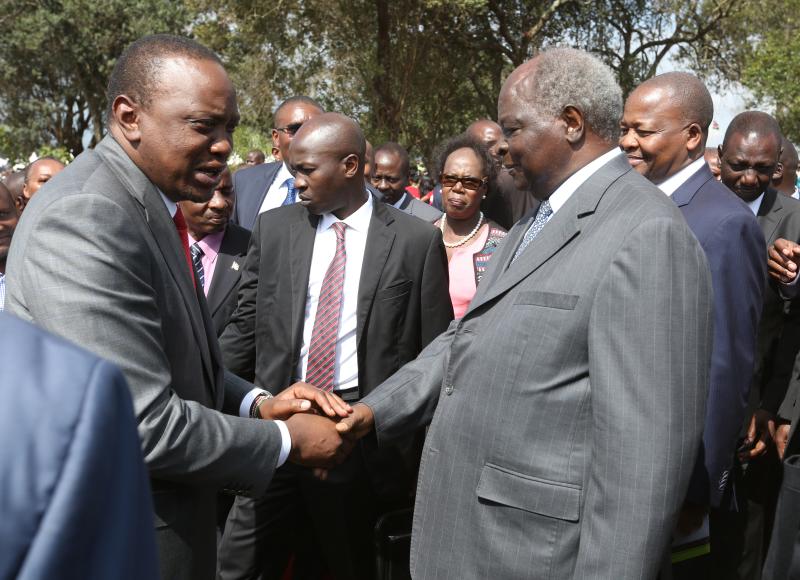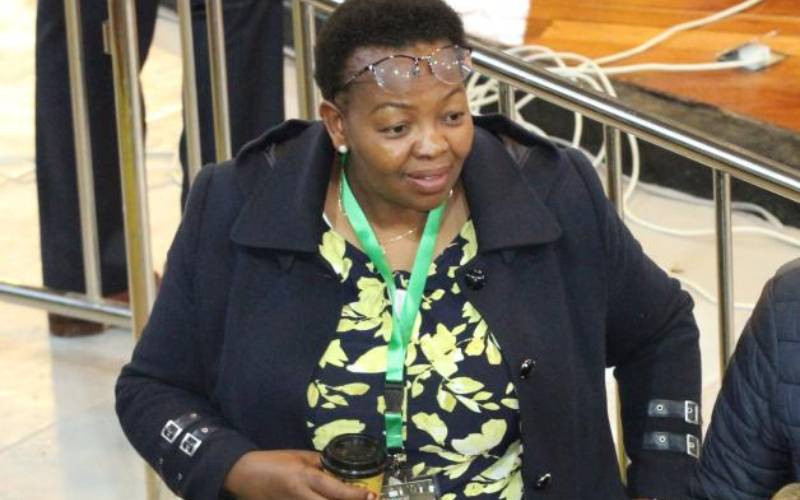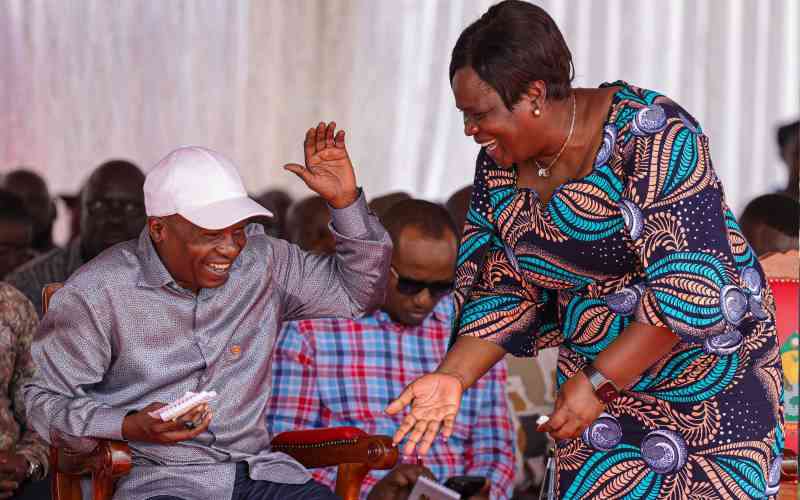President Uhuru Kenyatta shakes hands with former president the late Mwai Kibaki during the beatification of Sr. Irene Stefani Nyaatha at the Kimathi grounds on May 23, 2015. [Jacob Otieno, Standard]
×
The Standard e-Paper
Fearless, Trusted News





